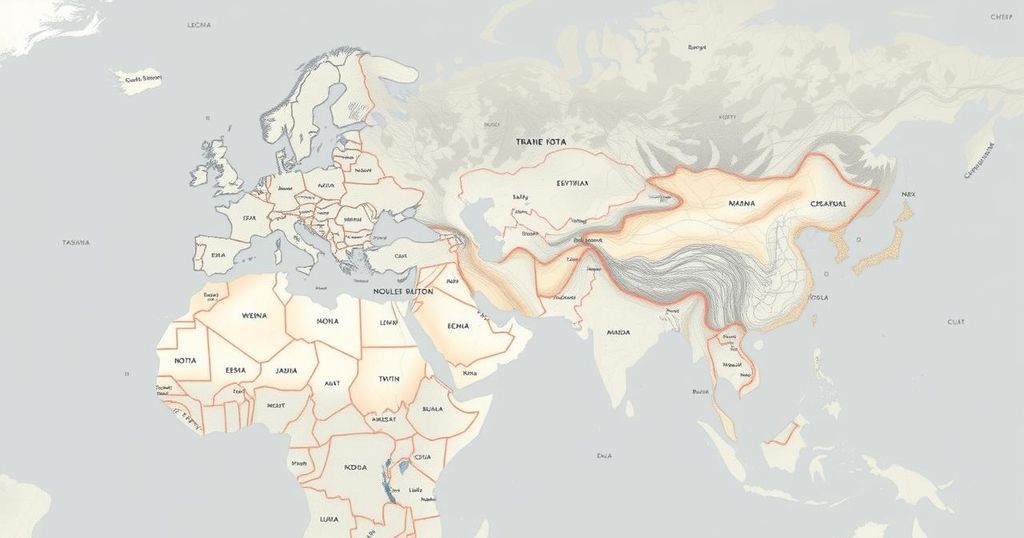Trump Administration Drafts New Travel Ban Targeting 43 Countries

The Trump administration is drafting a new travel ban targeting citizens from 43 countries, categorizing them into red and orange lists. The red list includes 11 countries barred from entry, while the orange list restricts travel but allows affluent visitors. Internal reviews and adjustments are ongoing before final submission to the White House.
The Trump administration is contemplating a new travel ban affecting citizens from up to 43 countries, which would extend beyond the previous restrictions during his first term. This potential policy shift is detailed in a draft document that categorizes countries into three tiers based on the severity of entry restrictions.
The first of these categories, termed the “red” list, identifies 11 countries whose citizens would be entirely barred from entering the United States. The countries listed include Afghanistan, Bhutan, Cuba, Iran, Libya, North Korea, Somalia, Sudan, Syria, Venezuela, and Yemen.
The draft list, which was prepared by the State Department several weeks ago, is still subject to revisions before being submitted to the White House. Various officials from embassies and regional bureaus are currently reviewing the document and providing feedback on the accuracy of the listed deficiencies as well as potential policy implications of the proposals.
Additionally, the draft includes an “orange” list, comprising 10 countries where travel would be restricted but not completely prohibited. In this case, affluent business travelers could enter, though those holding immigrant or tourist visas would not be granted access.
The discussions surrounding these proposed restrictions reflect an ongoing evaluation of national security and legal policies regarding immigration and foreign affairs under the current administration.
In summary, the Trump administration is poised to consider a new travel ban targeting citizens from 43 countries, categorized into strict and moderate entry restrictions. The internal deliberations remain sensitive, with officials emphasizing the importance of accuracy and potential implications on international relations. This development highlights the administration’s continued focus on national security measures as part of its immigration policy framework.
Original Source: www.nytimes.com








